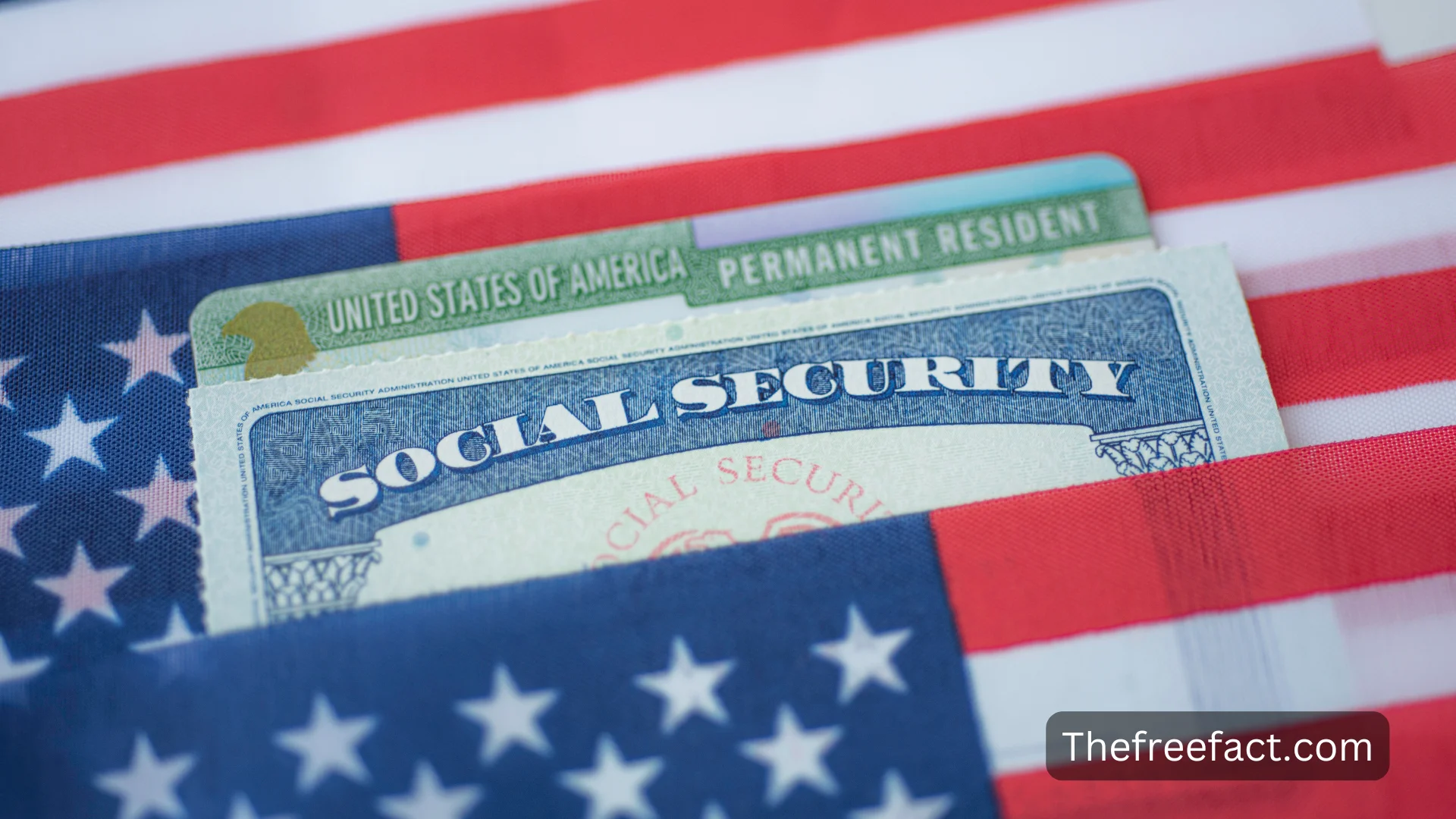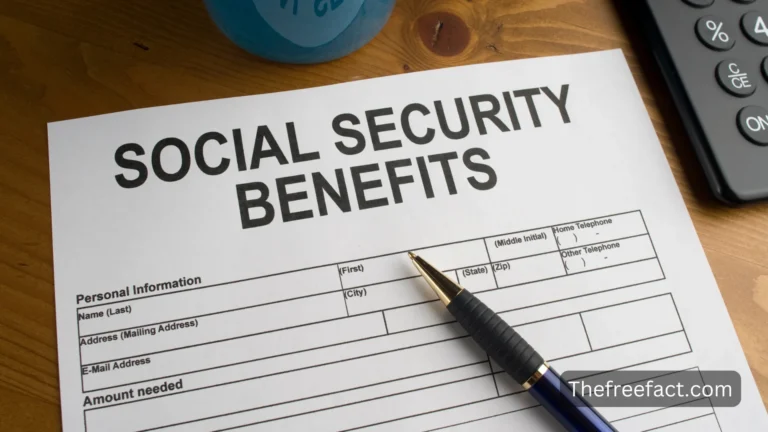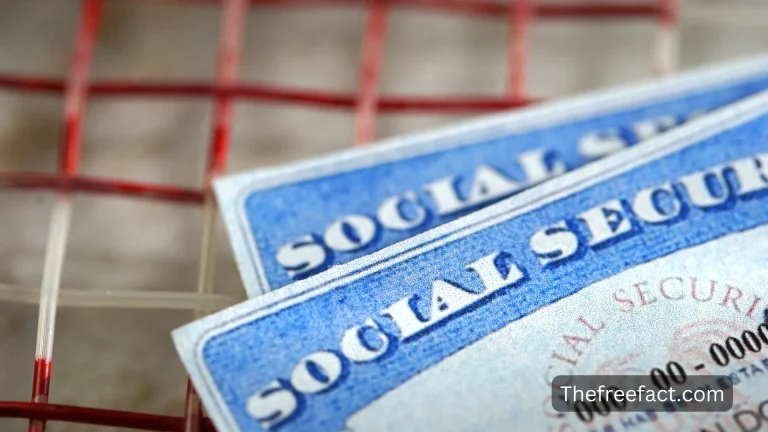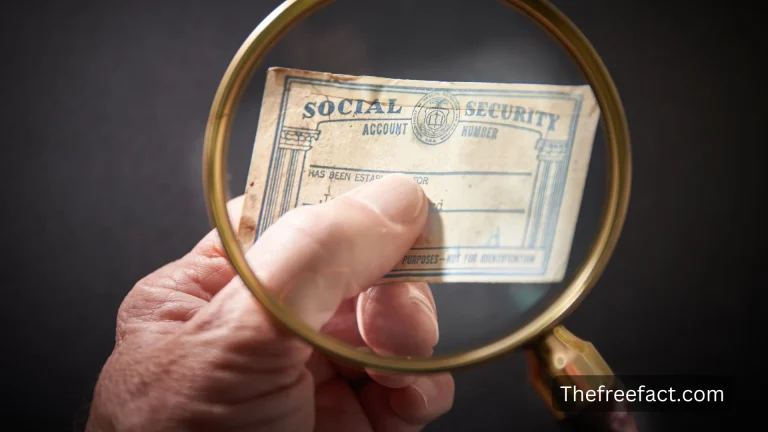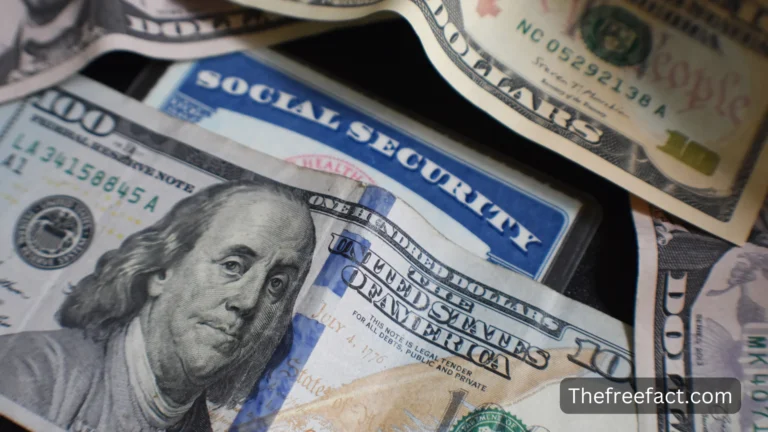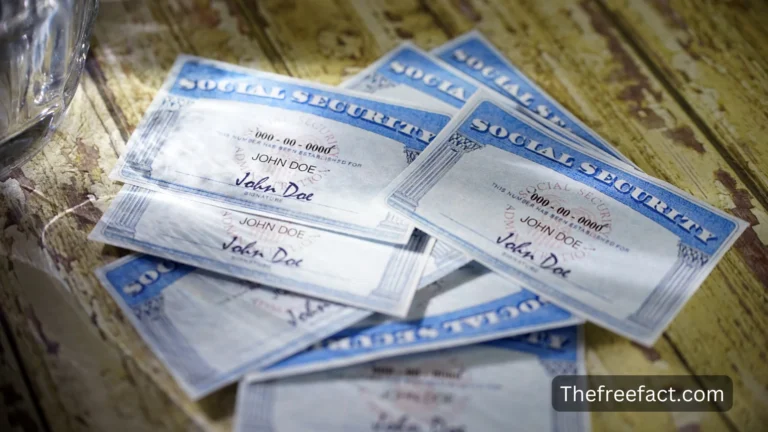How Do I know If My Social Security Number Has Been Stolen?
Social Security numbers (SSNs), which give scammers a direct line into your identity, finances, and credit report, are the most commonly exposed credentials in data breaches.
If you provide your Social Security number to a criminal, they can open accounts with your name on them, get credit cards, book medical appointments, and file tax returns with your name on them. Worse, they can commit crimes and rack up debt, damaging your credit history.
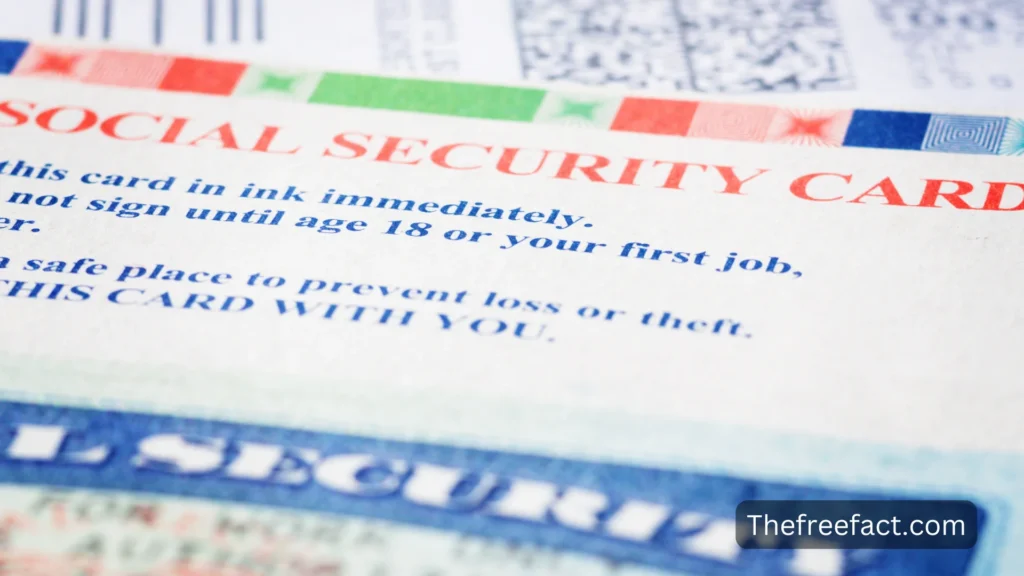
How Do I know If My Social Security Number Has Been Stolen: 6 Ways To Tell If Someone Is Using Your SSN
SSN theft is hard to identify until scammers use the stolen SSN — like applying for a line of credit. If you think your SSN was stolen or leaked, here’s how to know for sure:
1. Make sure your credit reports are free of fraudulent loans and accounts
It is almost always a financial motivation for identity thieves to use your SSN to obtain loans or open new accounts on your behalf.
- Get a copy of your credit report. Equifax, Experian, and TransUnion are the three credit bureaus that provide free credit reports to all Americans. You can order yours at annualcreditreport.com.
- Information about a person should be verified. It is possible for scammers to edit profile information, including names, addresses, Social Security numbers, and employment information. Make sure all sensitive information is correct.
- Review the history of accounts and payments. When you apply for new credit or open a loan with personally identifiable information (PII), credit reporting agencies will record it, possibly affecting your credit score. If you find errors or unfamiliar transactions, immediately contact the credit reporting agency to dispute them.
2. Take a look at your Social Security statement for information about your earnings
You will see any illegal income on your Social Security Statement if a scammer uses your stolen SSN to get a job or claim unemployment benefits in your name.
- You can order your Social Security statement online. You can view your statement online by creating an account at ssa.gov/myaccount. Alternatively, you can submit your request by mail by printing, filling out, and mailing Form SSA-7004.
- Make sure your statement is accurate. It is important to report all earnings, benefits, and taxes in accordance with your job and income source.
- Report possible fraud to the Social Security Administration (SSA). In case of inaccuracies or suspicious activity, contact the Social Security Administration at 1-800-772-1213.
3. Keep an eye out for unexpected charges and changes in your bank account statements
Before draining their victims’ savings or making larger purchases, thieves often attempt small transactions using stolen account information.
- Make a list of your statements. You should order paper statements from each financial institution to cross-reference spending with digital records in your mobile banking apps. When you receive your paper statements, make sure you review them right away.
- All linked accounts should be reviewed. It is sometimes possible to miss fraudulent activity on a sub-account; make sure you review all your checking, savings, and credit account transactions.
- Contact your bank or vendor for more information. If you find unfamiliar purchases or direct debits on your bank statements, request more information from merchants. If you can’t get assistance at the source, contact your bank.
4. Keep an eye out for credit card offers or unexpected statements in the mail.
It is possible for experienced thieves to change your address in order to cover their tracks, but there are a number of warning signs that can appear in your mailbox in the event of SSN theft.
- Be on the lookout for unfamiliar bills. When you receive strange bills in your name (or someone else’s), call the companies involved to investigate. If you receive strange bills from a financial institution or debt collection agency, you are likely the victim of fraud.
- Keep an eye out for credit offers. Contact the financial institution you are receiving prescreened offers from if you do not recognize the account (or if your child’s name is on the account).
5. Government notices, such as those from the IRS, should be followed up on
The IRS should be notified of any untoward activity related to your taxes, employment benefits, or healthcare.
- Resolve tax return issues as soon as possible. The Internal Revenue Service (IRS) will contact you if it flags a tax refund in your name as suspicious. Likewise, if you suspect someone is using your SSN to claim benefits or taxes, call 1-800-908-4490.
- Take a look at your Medicare history. SSNs can be used by identity thieves to steal medical treatments or prescriptions. Medicare claims can be reviewed online or by calling 1-800-MEDICARE (1-800-633-4227). It is possible to file a complaint with the Office of Inspector General of the U.S. Department of Health and Human Services if evidence of fraud is found on your Medicare account.
6. Data breaches can be detected using a Dark Web scanning service
Using the Dark Web, identity thieves, hackers, and scammers can buy and sell stolen personal data, such as credit card numbers, birth certificates, and Social Security numbers. It is impossible to wipe your sensitive data from the Dark Web, but you can prevent scams and fraud attempts by knowing if it is exposed.
- Free data exposure risk assessment. If you are concerned about the security of your finances, you should use tools like haveibeenpwned.com. You can scan your email address to see if it has been compromised in recent data breaches, but they aren’t ideal when your finances are at risk.
- Premium coverage with comprehensive coverage. You will receive fraud alerts in near real-time and support from Identity Guard’s Fraud Resolution Specialists as Identity Guard scans the Dark Web, public records, and online sites for your personal information, including your SSN.
Also check: How To Get Replacement Social Security Card?
How to handle a stolen social security number
Theft of your SSN and other personal information can allow you to open accounts in your name, apply for loans and credit cards, and open cell phone and utility accounts. If you believe that your information has been stolen, you should:
- You can report identity theft and get a recovery plan by visiting IdentityTheft.gov. This is a one-stop resource maintained by the Federal Trade Commission, the nation’s consumer protection agency.
- In case of future problems, you should file a police report.
- You can report cybercrime online at the Internet Crime Complaint Center (IC3) at ic3.gov. It has the responsibility of receiving, developing, and referring cybercrime complaints to authorities.
- Call one of the three major credit bureaus and consider freezing your credit report or adding a fraud alert. The company you call must notify the other two.
- Call 1-800-525-6285 for Equifax.
- Call 1-888-397-3742 for Experian.
- Call 1-800-680-7289 for TransUnion.
- The AnnualCreditReport.com website provides free credit reports that can be accessed online on a regular basis.
- Visit Identity Theft Central or call 1-800-908-4490 to prevent someone from using your Social Security number to file a tax return to receive your refund.
Your Social Security Number Can Be Used By Someone Else
- All three credit bureaus should be frozen. By freezing your credit, you prevent scammers from opening new accounts using your SSN. You must do this with each of the three major credit bureaus – Experian, Equifax, and TransUnion.
- Inform the Federal Trade Commission (FTC) about identity theft. It is the Federal Trade Commission’s responsibility to investigate fraud in the United States. You can give evidence to the FTC by filing a report at IdentityTheft.gov. An affidavit and fraud recovery plan will be provided to you by the FTC.
- Law enforcement should be contacted. If you are unable to get your money back, then you should file a police report as soon as possible. Bring your FTC report and supporting evidence to assist the fraud department at your local police station.
- Sign up for my Social Security online. Set up your own Social Security account by visiting the website of the Social Security Administration (SSA).
- Online self-locking is available. Using the E-Verify website, employers will receive a warning when they check a locked SSN on the site, which prevents others from using it for employment-related fraud.
- Get an IRS Identity Protection PIN. The IP PIN is a six-digit number that you can order through your online IRS account to prevent unauthorized individuals from filing a tax return with stolen SSNs or Individual Taxpayer Identification Numbers (ITINs).
- File a fraud report with Social Security. If you suspect someone is using your Social Security number, you should report it immediately to the SSA’s Inspector General. To assist the OIG in their investigation, provide as much evidence as possible. Call 1-800-269-0271 or submit your report online at oig.ssa.gov/report/.
- If someone asks for your SSN, ask why. According to the Social Security Administration, you should be careful with sharing your social security number. If anyone asks for it, you should find out why, how, and what will happen if you don’t. It is also a good idea to keep your Social Security card secure — like in a locked safe — and not in your wallet.
Protect yourself in any other way you can
For any suspicious activity, create a my Social Security account or log in to your current account. If you have not yet applied for benefits, please:
- Your Social Security Statement and future benefit estimates should be accessible, and you should not find any benefit payment amounts.
- Be sure that your Social Security number is not being used by anyone else by reviewing your Statement.
My Social Security account allows you to add blocks if you receive benefits:
- Your personal information cannot be viewed or changed online by anyone, including you.
- Using my Social Security or a financial institution (via auto-enrollment), you will not be able to enroll or change your direct deposit information through Direct Deposit Fraud Prevention.
If you want to change or remove the blocks, you will need to contact us.
Your information can also be safeguarded in other ways
- It is best not to carry your Social Security card around with you. Keep it at home in a safe place. Be careful with who you give your number to.
- If one password is stolen, hackers can access multiple accounts if you change your passwords regularly.
- With multi-factor authentication, you can add an extra layer of security to your online account by requiring a password as well as additional information.
- It is important to be cautious of scammers pretending to be Social Security employees. If you receive a suspicious call, text, or email regarding your Social Security number or account, ignore it, hang up, and do not reply! Visit Protect Yourself From Scams for information and to report the scam.
SSNs can’t be changed – protecting them is very important
Even if you’re a victim of identity theft, it’s not always possible to change your Social Security Number, nor is it recommended. Your debts won’t be cleared and your credit file damaged with a new Social Security Number. A low credit score and incomplete credit history may result from the transition.
Sign up for an Identity theft protection solution that monitors your SSN and other personal information for signs of fraud if you want to find out if your SSN is being misused (and receive support while you navigate fraud).
Providing SSN and Dark Monitoring features, along with near-real-time fraud alerts, Identity Guard will help you spot risks quickly. It also includes $1 million in identity theft insurance to cover eligible losses and legal expenses.
What you need to know about SSN scams
Here are some examples of SSN scams that scammers use to get you to share your Social Security number:
- If you confirm your Social Security number, you will receive a phone call offering a record or report of your Social Security payments.
- Emails containing dangerous links or asking for your personal information via phishing emails.
- Attempts to scare you into taking action by claiming your Social Security Number has been linked to a crime.
